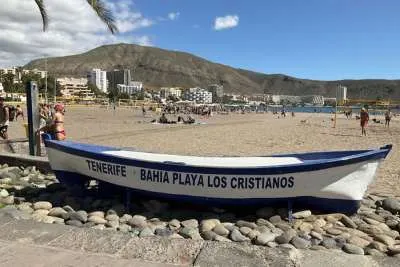Your Ultimate Guide on How to Find Jobs in Greece
- 24-05-2025
- Business
- collaborative post
Wondering how to find jobs in Greece that match your language skills and career goals? You're not alone. The development of remote work and international companies opening regional offices has led to a great demand for multilingual jobs in Greece. It is now easier and more attractive to find such jobs, particularly for expats or professionals fluent in several languages.
If you are considering relocating to Greece for work, this guide will help you know what to anticipate, how to get ready, and why knowing multiple languages makes you a valuable asset in today’s employment opportunities.
WHY MULTILINGUAL PROFESSIONALS ARE IN DEMAND IN GREECE
Over the past decade, Greece has become a prominent location for customer support and outsourcing, as well as technology services. Numerous international firms have set up operations in Greek cities like Athens, Thessaloniki, and Crete, looking for skilled professionals who can service clients from all across Europe and even further.
This growing demand has led to a surge in multilingual jobs in Greece, especially in roles like:
● Customer support and call centres
● IT helpdesk and technical support
● Translation and localisation
● Sales and business development
● Content moderation and digital marketing
You are well ahead of the competition if you are proficient in English, French, German, Dutch, Italian, or any of the Nordic languages. Employers are actively seeking employees who can facilitate communication between local teams and overseas clients.
WHERE TO FIND JOBS IN GREECE
There are plenty of opportunities for finding a job in Greece. All you need to do is look in the right direction. You can search for work on online job portals, recruitment agencies, company websites, and Facebook groups. However, if you want someone to guide you through the whole process and help you with the relocation and settling down, then you should look at speakitjobs.com.
MOVING TO GREECE FOR WORK: WHAT YOU NEED TO KNOW
Moving to Greece for work can be an exciting lifestyle upgrade, but it's important to prepare for the transition both professionally and practically.
Here’s what to keep in mind:
1. Legal Requirements
● EU Citizens: You have the right to work in Greece without a visa, but you’ll need to register locally and get a tax number (AFM) and social security number (AMKA).
● Non-EU Citizens: You’ll need a valid job offer to apply for a work visa and residence permit. Some companies assist with the relocation and visa process for high-demand multilingual roles.
2. Cost of Living
Greece offers a relatively affordable lifestyle compared to other European countries. Cities like Athens and Thessaloniki offer modern amenities, while island life tends to be more relaxed (and seasonal).
3. Work Culture
Greek work culture combines professionalism with a Mediterranean sense of community. Expect a friendly, somewhat informal environment, but also be ready for structure and deadlines. English is widely spoken in the workplace, especially in international companies.
REMOTE JOBS IN GREECE FOR MULTILINGUAL SPEAKERS
Greece quickly adjusted to the pandemic's remote working model and now offers unprecedented access to remote employment opportunities, particularly for multilingual professionals.
Given that most urban regions in Greece have reliable internet access, experts from different time zones can easily collaborate with professionals living in Athens or coastal Crete. This makes it possible for fluent Greeks and remote workers to enjoy true work-life balance.
TIPS FOR STANDING OUT IN THE MULTILINGUAL JOB MARKET
If you are looking to secure one of the multilingual jobs in Greece, these pointers will greatly improve your chances:
1. Tailor Your CV and Cover Letter
Highlight your language skills clearly. Include certifications (like TOEFL, IELTS, or Goethe-Institut exams) if you have them, and mention any experience working in multicultural teams.
2. Mention Flexibility and Remote Work Readiness
Even if you're in Greece already, emphasizing your ability to work remotely or on hybrid schedules adds value. Employers appreciate candidates who can adapt to various working environments.
3. Highlight Soft Skills
Many multilingual roles require patience, cultural sensitivity, and problem-solving. Whether it’s handling customer inquiries in different languages or managing cross-border communication, soft skills are just as important as fluency.
4. Keep Learning
Consider brushing up on your Greek. Even basic knowledge goes a long way. It shows employers your commitment to integrating into the local culture, which can make you more attractive as a long-term hire.
WHY GREECE IS A GREAT PLACE TO BUILD A MULTILINGUAL CAREER
Greece is not only appealing because of the job opportunities it offers. But it also has a high quality of life. After finishing your remote shift, you can go for a swim in the summer, or you can visit monuments and museums. With a lower cost of living, friendly locals, and over three hundred days of sunshine a year in some parts of Greece, it’s easy to see why moving to Greece for work is high on the wish lists of many professionals.
Now that you know how to find jobs in Greece as a multilingual professional, it’s time to take the next step. If you already live in Greece or are planning to relocate, there are countless multilingual jobs in Greece and opportunities waiting for candidates with language skills like yours. From remote jobs in Greece to office work in globally recognised firms, your ability to navigate across diverse cultures is more useful than ever. So, polish that CV, refresh your knowledge of Greek, and start sculpting your Mediterranean life.
Other articles that may interest you...
Trending
Most Read Articles
Featured Videos
TributoFest: Michael Buble promo 14.02.2026
- 30-01-2026
TEAs 2025 Highlights
- 17-11-2025


























































